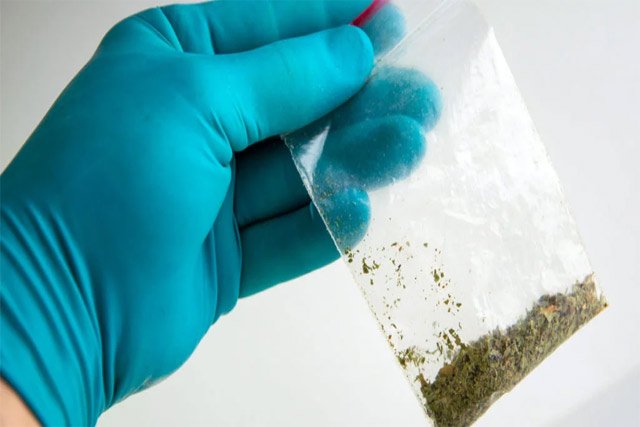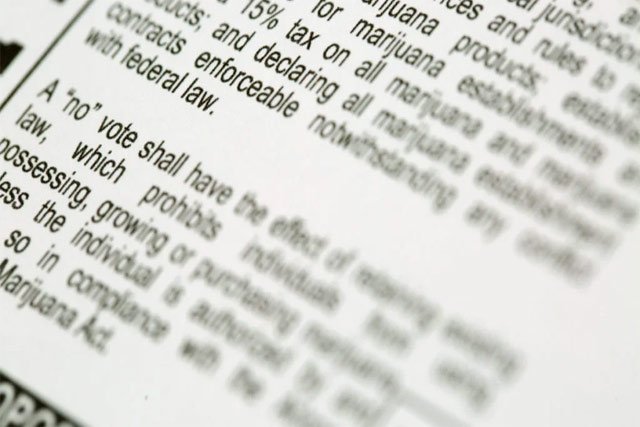Delta-8-THC (delta-8) offers a legal way to get high for millions of Americans, with hemp now permitted across the United States. But some states are now cracking down on delta-8 products – is Georgia one of them?
Delta-8 is currently legal in Georgia, according to state and federal law. Georgia has legalized all derivatives of the hemp plant. The possession, use, distribution, and sale of delta-8 are all legal in Georgia. There are no limits on how much delta-8 hemp-derived products can contain.
In this post, I want to clear up any concerns you have about the legality of delta-8 in Georgia. I’ll touch on state law, federal law, the DEA’s stance, and delta-8’s future.
Delta-8 State Law in Georgia
After the federal government legalized hemp in 2018, Georgia cemented the change into state law. The Georgia Hemp Farming Act was enacted in 2019 following the passage of House Bill 213 (HB 213).
The bill matched the wording of the 2018 Farm Bill passed by the federal government and legalized the hemp plant in its entirety. HB 213 defines hemp as the Cannabis Sativa L. plant and all derivatives of the plant, including cannabinoids (with a maximum of 0.3% delta-9-THC on a dry weight basis).
That delta-8 – a substance that can get you high – is legal in a state like Georgia might come as a bit of a shock. Recreational marijuana is still illegal in the Peach State, and Georgia’s medical marijuana program only permits low-THC oil. In addition, as of September 2022, delta-8 is illegal in 18 states.
But so far, the Georgia Hemp Farming Act is the only state law relevant to delta-8 products. The act legalized the use, possession, sale, and cultivation of hemp – hence the recent emergence of the delta-8 market.
Delta-8 Federal Law
After the federal government legalized industrial hemp in 2014, hemp-derived products such as CBD existed in a gray area. In 2018, the federal government legalized hemp-derived products without any doubt by passing the 2018 Agriculture Improvement Act (Farm Bill).
The Farm Bill legalized hemp-derived products with a broad brush and created an opening for delta-8. The bill legalized the Cannabis Sativa L. plant and all of its components, with one restriction. Products can only be classified as hemp if they contain less than 0.3% THC.
The THC caveat was supposed to prevent the emergence of legal highs. But by legalizing all cannabinoids, the Farm Bill has essentially permitted hemp products with high concentrations of delta-8.
For sure, the federal government’s position on hemp, marijuana, and THC cannabinoids is now bizarre and contradictory. While delta-8 is legal and the industry is flourishing, delta-9-THC is still heavily restricted, classified as a Schedule 1 substance in the Controlled Substances Act. In reality, the compounds produce similar effects.
This certainly was not the intention of legislators. But in fairness, it was difficult to see coming. Delta-8 is present in tiny quantities (less than 1%). Since hemp plants generate hardly any delta-8, few could imagine that delta-8 products would become such a big thing.
Here is where things get controversial. Natural production of delta-8 is so low that manufacturers could not possibly extract the compound naturally and turn a profit – manufacturers would need to use 20 to 50 times as much plant material as they do for making CBD products.
To get around this, companies make delta-8 products using another method known as isomerization. Without getting too technical, this involves turning CBD into delta-8 via a laboratory process. Some claim that this makes delta-8 products synthetic and, therefore, illegal.
The Drug Enforcement Administration (DEA) did little to ease these concerns after releasing an Interim Final Rule (IFR) in 2020.
The DEA and Synthetic Cannabinoids

The IFR published by the DEA was meant to deal with misconceptions and confusion surrounding the 2018 Farm Bill, specifically by addressing the legality of synthetic tetrahydrocannabinol.
Crucially, the IFR declared that “synthetically derived tetrahydrocannabinols” were still Schedule 1 substances, regardless of whether they contained delta-9-THC or not. So, did the DEA publish the IFR to clamp down on the delta-8 market?
It’s hard to say since the DEA did not define what it meant by the term “synthetic,” leaving the IFR open to interpretation. Delta-8 manufacturers are taking their chances and continue to sell products in states such as Georgia, which haven’t passed specific laws banning delta-8.
In my view, the DEA is definitely not happy about the delta-8 market and the sudden arrival of a nationwide legal high, thanks to the Farm Bill. But that does not necessarily mean the IFR was targeting delta-8.
Synthetic tetrahydrocannabinol is a much wider problem. Synthetic marijuana products like spice have caused huge problems over recent years. These products are more potent than marijuana, more addictive, and have nastier side effects.
What’s more, there’s no debating that spice is 100% synthetic. These synthetic marijuana compounds do not exist in the natural world and are created from scratch in the laboratory. The isomerization process used to make delta-8 products may not be 100% natural, but it’s much different from how spice and other synthetic tetrahydrocannabinol are made.
What Does Synthetic Mean?
Let’s take the dictionary definition: “of, relating to, or produced by chemical or biochemical synthesis especially; produced artificially.” Does the isomerization process meet this description?
Many experts argue that isomerization is a natural process. If exposed to the right conditions, CBD would turn into delta-8 naturally, without any outside interference. In the lab, the techniques used simply speed the isomerization process along and make it more efficient.
Furthermore, unlike spice, delta-8 is made naturally and doesn’t involve synthetic compounds. Both CBD and delta-8 are naturally occurring compounds.
There is an argument that psychoactive delta-8 products go against the spirit of the hemp law and should not be legal. But right now, the federal government has taken no action against delta-8. Furthermore, critics cannot reasonably claim the IFR wording on synthetic tetrahydrocannabinol applies to delta-8.
Delta-8’s History in Georgia

Delta-8 has a short and sweet history in Georgia. Like everywhere else in the United States, marijuana in all forms was illegal until the 2010s. Cannabis and its derivatives were first restricted in 1937 by the Marihuana Tax Act.
The plant then became a Schedule 1 substance and was deemed to have no medical use in May 1971, following the passage of the Controlled Substances Act.
Delta-8 was first identified in 1941 when partially synthesized by researchers at the University of Illinois. However, it only shot to prominence in 2018 after becoming legal thanks to the federal government’s Farm Bill. Georgia defined hemp similarly in the Georgia Hemp Farming Act, which passed in 2019.
Buying and Selling Delta-8 in Georgia
With the possession, sale, and distribution of hemp now legal in Georgia, consumers can buy, and vendors can sell without fear. But if you are interested in purchasing delta-8, there are a few things to be wary of.
You have to be a little cautious when buying delta-8 – and indeed any hemp-based products – due to the unregulated nature of the market. The Food and Drug Administration (FDA) does not regulate delta-8 products. This means there are no industry-wide standards on product quality and safety.
There are many legitimate companies in the delta-8 space. But there are also a few bad actors selling low-quality or fake products. This is even more of a concern with delta-8 since products are partially manufactured in a lab. Thankfully, these bad actors are usually easy to spot and avoid.
Finding a legit delta-8 brand
Firstly, you should be suspicious of any company selling delta-8 at ridiculously low prices. To undercut the competition, these brands could make products less potent than claimed. They could also be cutting corners and using cheaper, inferior ingredients.
The fake vape juice scandal in 2019-20 showed the dangers of buying dodgy products from scammers. More than 60 people died due to taking fake, untested THC e-liquids containing vitamin E acetate.
While the FDA does not regulate delta-8 products, legit brands effectively regulate themselves via third-party testing. In a nutshell, genuine companies will send products to independent laboratories to check for safety, potency, and legality.
Companies that receive third-party approval cannot wait to tell you about it! Legit brands want to show you that they are making safe and genuine delta-8 products. The scammers and cowboy companies do not have an answer to this.
If a brand refuses to show you third-party lab results, presume they have something to hide. There’s no good reason to part with your money and risk your health on a brand that cannot or will not show you their products are the real deal.
Gas stations and headshops have a bad reputation for stocking these untested and potentially dangerous delta-8 products. In contrast, you can find third-party lab results for all delta-8 products.
The Future of Delta-8 in Georgia

Georgia lawmakers do not currently have any plans to ban delta-8, although this could change in the future. Moreover, if the DEA chooses to crack down on delta-8 in the coming months or years, this will also impact Georgia.
I’m a little surprised that legislators haven’t tried banning delta-8 since marijuana is illegal in Georgia and delta-8 is prohibited in several states. But I’m not complaining! Weed is basically legal in Georgia right now, which is a fantastic situation for cannabis lovers!
The DEA could have the final say on delta-8. The IFR on synthetic tetrahydrocannabinols showed that the Farm Bill is still fresh in the agency’s mind and that more clarifications could come in the future.
The DEA could define “synthetic” in a way that implicates delta-8 products. Hopefully, that won’t happen, but if it does, the delta-8 industry will disappear in Georgia and throughout the US.
Less likely, perhaps, but still possible over the coming years is marijuana legalization at the federal level. If marijuana becomes legal, the delta-8 industry would undoubtedly decline, as consumers could then buy regular cannabis products.
For now, delta-8 is legal in the eyes of both Georgian and federal lawmakers. However, the industry faces an uncertain future that is difficult to predict.
The big fear is that legislators will correct their earlier oversight and delta-8 and other psychoactive cannabinoids that were legalized as part of the Farm Bill. But supporters nationwide will no doubt fight hard to keep delta-8 products legal.




